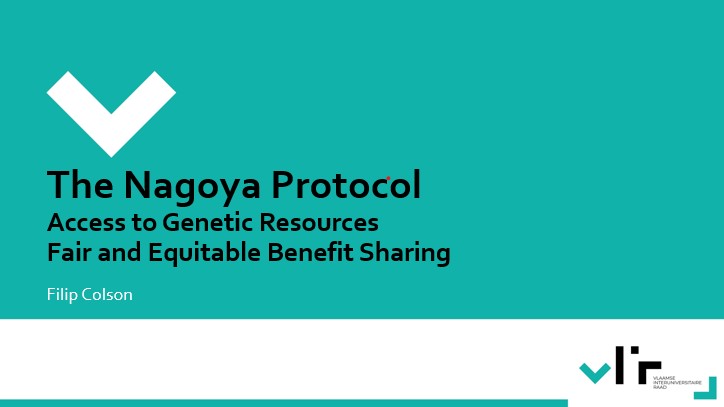
If you utilize biological material, more specifically so-called genetic resources, in Belgium, you must meet certain due diligence obligations under EU Regulation (EU) No 511/2014. This regulation implements the mandatory elements of the Nagoya Protocol in the European Union.
Every country has sovereign rights over the genetic resources that exist within its borders, including animals, plants and microorganisms. The Nagoya Protocol is an international legal framework that enables equitable sharing of genetic material (plant, animal, microbial, other) including the traditional knowledge associated with the genetic resources, and the benefits that arise from their use.
Researchers have a legal obligation to comply with the Nagoya Protocol. The Protocol only applies to genetic resources accessed: 1) from a country that is party to the Nagoya Protocol and that has Access and Benefit-sharing (ABS) legislation and 2) for the purpose of ‘utilization of genetic resources’ after 12th October 2014.
The protocol does not apply to:
- Human genetic resources
- Genetic resources already governed by specialised international instruments (e.g. the International Treaty on Plant Genetic Resources for Food and Agriculture)
- Genetic resources as traded commodities
The Protocol applies both to those who obtain genetic resources directly from the country of origin and those who obtain them indirectly from third parties.
Researchers who use such material are required to follow several steps to ensure that genetic resources, and traditional knowledge associated with those resources, have been accessed in accordance with applicable access and benefit sharing laws implemented by the provider country. These include undertaking due diligence to ensure that all relevant permissions have been obtained, proper record keeping and the submission of due diligence declarations. See Compliance section below & the Checklist for Researchers.
Researchers should refer to the Access and Benefit-sharing Clearing House (ABS Clearing House) which is an international web-based tool that facilitates the implementation of the Nagoya Protocol. The ABS Clearing House shares relevant information about ABS (e.g. domestic regulatory ABS requirements and the national focal points and competent authorities) and supports the monitoring of utilization of genetic resources.
Note that the conditions for access are defined by the provider country, so details of the access procedure will vary from country to country.
These case studies have been published by the Swiss Academies of Arts and Sciences: Utilization of genetic resources and associated traditional knowledge in academic research. 2016, Swiss Academies Reports 11 (4), Bern, Switzerland.


